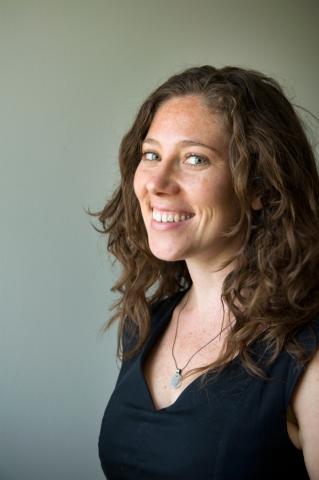
Heather loves pinhole cameras, the Pacific Coast, the power of story, frequenting protests, getting on planes with her passport, camels-as-transportation, helping to empower voices on the margins, and anything related to Afghanistan. She has spent the past 10 years working throughout the U.S., Asia, and the Middle East, doing photography and communications work for developmental non-governmental organizations.
Heather is currently Digital and Creative Director for PICO. To peruse her photography, visit Dust and Light Photography, and follow her on Twitter @aNomadPhotog.
Posts By This Author
Clergy Came to Charlottesville
Photographer Heather Wilson accompanied dozens of faith leaders from a Friday night worship service to the streets of Charlottesville. Click through for her images of clergy presence in Charlottesville this weekend.
View From Standing Rock: 'No Spiritual Surrender'
In the last week, reports of police using concussion grenades, water cannons, and tear gas on members of the Standing Rock Sioux and gathered Water Protectors resulted in dozens of activists being hospitalized. What comes next remains to be seen. Over the weekend, the Army Corps of Engineers ordered an eviction of Oceti Sakowin Camp by Dec. 5. On Nov. 27, the agency updated its eviction notice to say it "has no plans for forcible removal. But those who choose to stay do so at their own risk ... [and] will be considered unauthorized and may be subject to citation under federal, state, or local laws."
Nearly 1,500 veterans, EMTS, and firefighters have pledged to arrive to camp on Dec. 4 to stand in support of the Water Protectors, and there are signs that the militarized response to the protests is wearing on North Dakota’s resources.
The #FlintWaterCrisis Photo Everyone Should See
The crisis in Flint, Mich., has sparked outrage and condemnation, hitting covers and front pages of national media outlets, and pointing to yet another example of our country's original sin of systemic racism. Photographer Heather Wilson shares with us this image from Flint: the old water pipes — blamed for high levels of lead in the city's water, leading to neurological damage in infants and children — v. the new pipes in the background.
#UnitedWeFight — Clergy in Ferguson March for Justice

Image via Heather Wilson/Dust and Light Photography
PHOTO ESSAY: On Monday, fifty-seven people were arrested as part of the #UnitedWeFight march and peaceful civil disobedience at the Thomas F. Eagleton U.S. Courthouse. The march was in commemoration of the year-long resistance sparked in #Ferguson by the murder of #MikeBrown.
Afghanistan: A Decade of Life in the Midst of Conflict
On the crest of that hill, mourning the violence Kabul had suffered, I stumbled upon a patch of vibrant wild tulips growing at my feet, and was reminded that, even in this place of bloodshed, beauty and life returns.
Today, may we remember the life, hope, and courage that remains in Afghanistan.
Dissenters, Monastics, and Doubters: My Kind of Faith at the Wild Goose Festival
Audio Slideshow with Heather Wilson
In this audio slideshow, photographer Heather Wilson talks about the beauty of the people, culture, and land of Afghanistan that she experienced while living there.
Cairo is Burning, Mr. President
While watching live footage from Egypt over the past few weeks, over and over my question has been, so what can I do?
Clergy and Students Pray Together for the DREAM Act
'Darkness Cannot Put Out Darkness': Friends Murdered in Afghanistan
Ten more lives were lost in Afghanistan last week. Many people will likely say this danger is reason not to work in Afghanistan, yet I would disagree.
'Hey Obama, Don't Deport My Momma!': A Photo Essay
Audio Slideshow with Heather Wilson
While we often hear only about violence, many Afghans make daily sacrifices to make life better for their families and country.
World Vision Staff Killed in Pakistan: The Cost of Courageous Compassion
Blurred Lines Between Military and Humanitarian Efforts in Afghanistan Raise More Questions than Answers
Reported in a recent Times article, leading non-governmental organizations (NGOs), speculate that the militarization of aid in Afghanistan blurs lines between military and humanitarian responses, jeopardizing the success of projects and the lives of staff, wanting a return of all aid work to NGOs.
